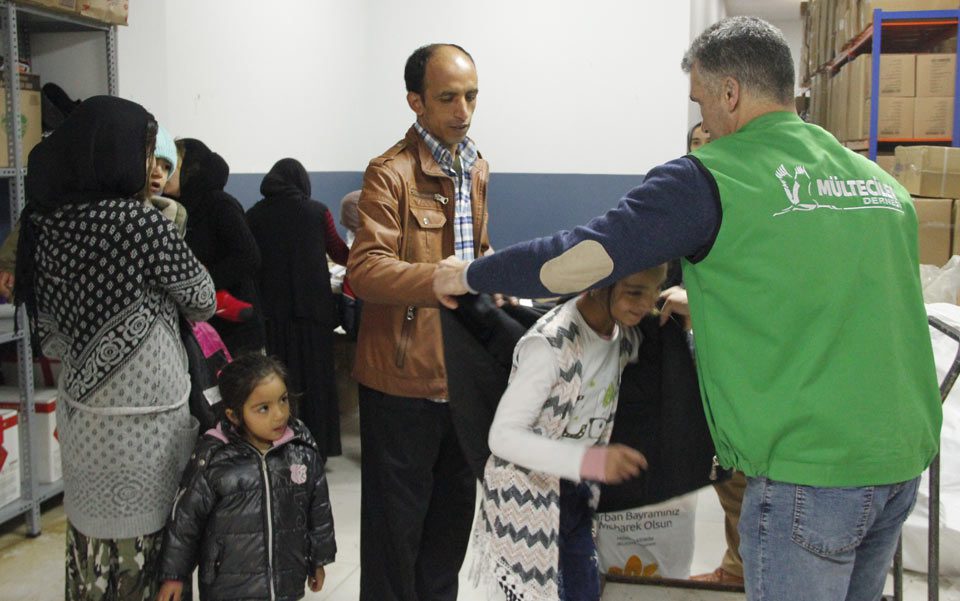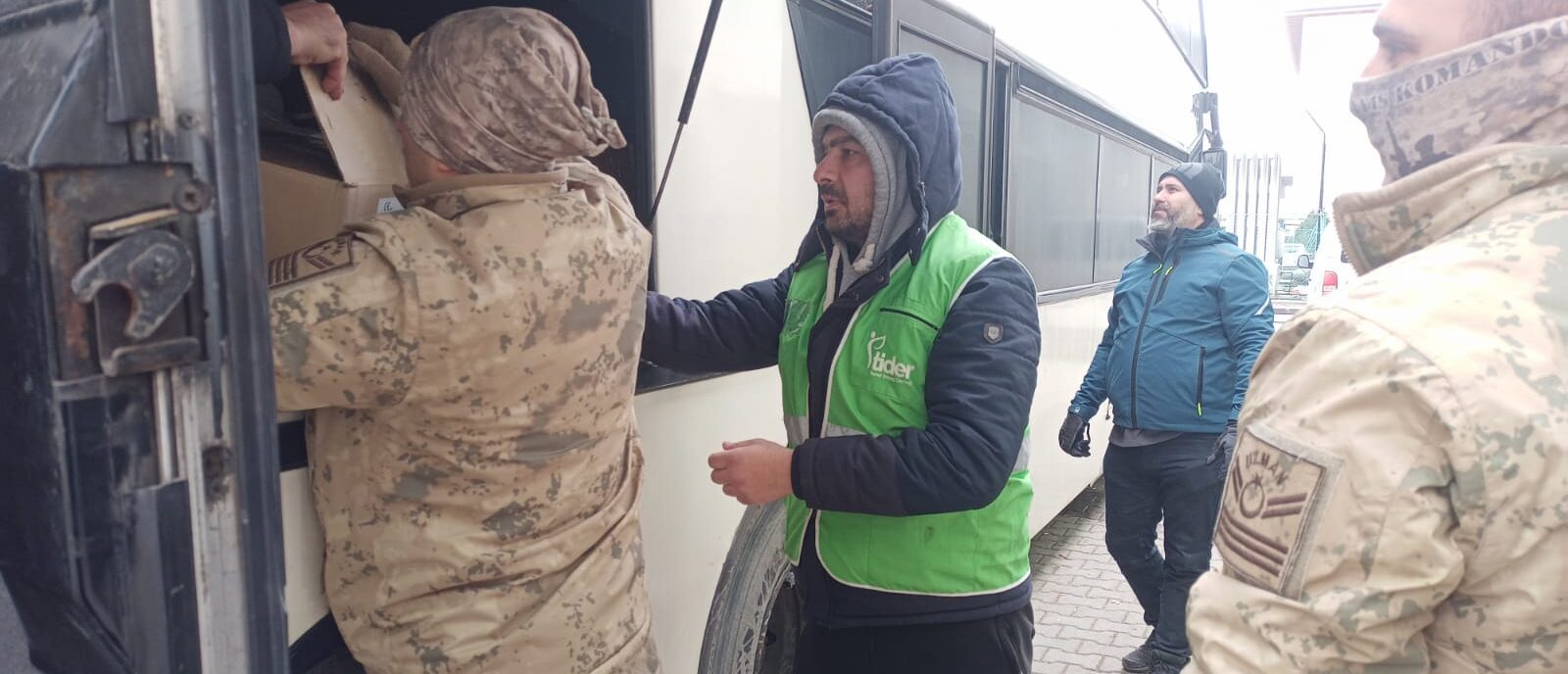More often than not, when Adıyaman Support Market shoppers walk in the door, they’re greeted with a big smile from Elanur Çakır at the register. If people coming to the Support Market in are new, Elanur shows them around the long, fully stocked aisles. Then she explains the checkout process, which is based on a system of points instead of money.
But at this moment, Pinar Sedefilik, who happens to be Elanur’s favorite customer, is stopping by. The two take a moment to catch up.
“I love her energy,” Elanur says. “She smiles a lot, she’s talkative. She’s a strong single mother.”
The market has become a lifeline for so many people in Adıyaman who were affected by the 7.8-magnitude earthquake that hit this part of the country in 2023. It’s a part of Basic Needs Association, or TIDER, which supports a network of food banks that serve more than 1 million people in 40 cities across Türkiye. Each food bank is set up like a grocery store, giving patrons a wide variety of food, cleaning and hygiene products.
Elanur and her family actually live just three doors down from Pinar and her daughters in Umut Kent K20, also known as Hope City, a collection of small, tightly packed houses converted from shipping containers in the middle of Adıyaman.
“The earthquake was really hard for everyone here,” Elanur said. “We lost a lot. To still be alive, it’s like a second chance.”
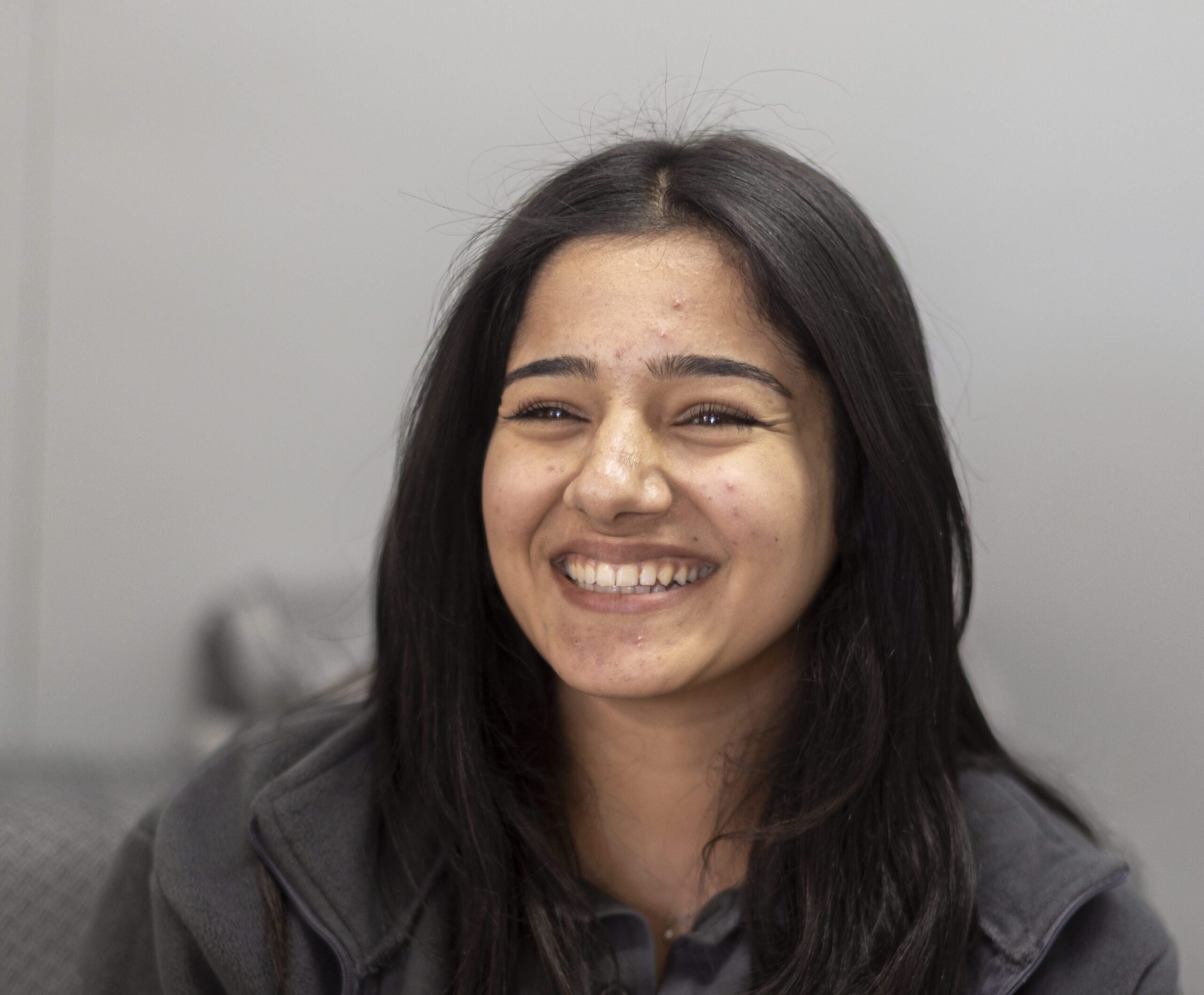
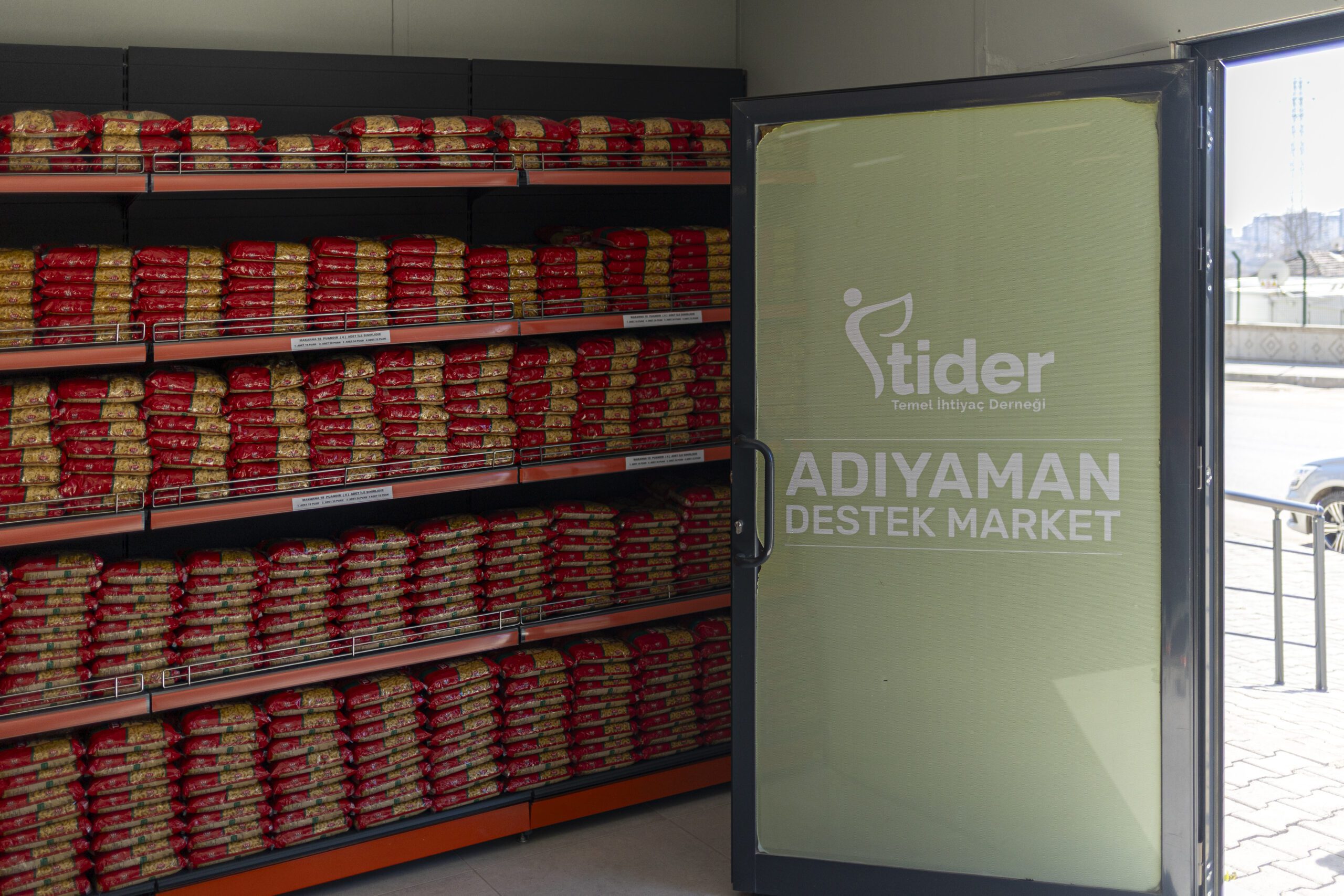
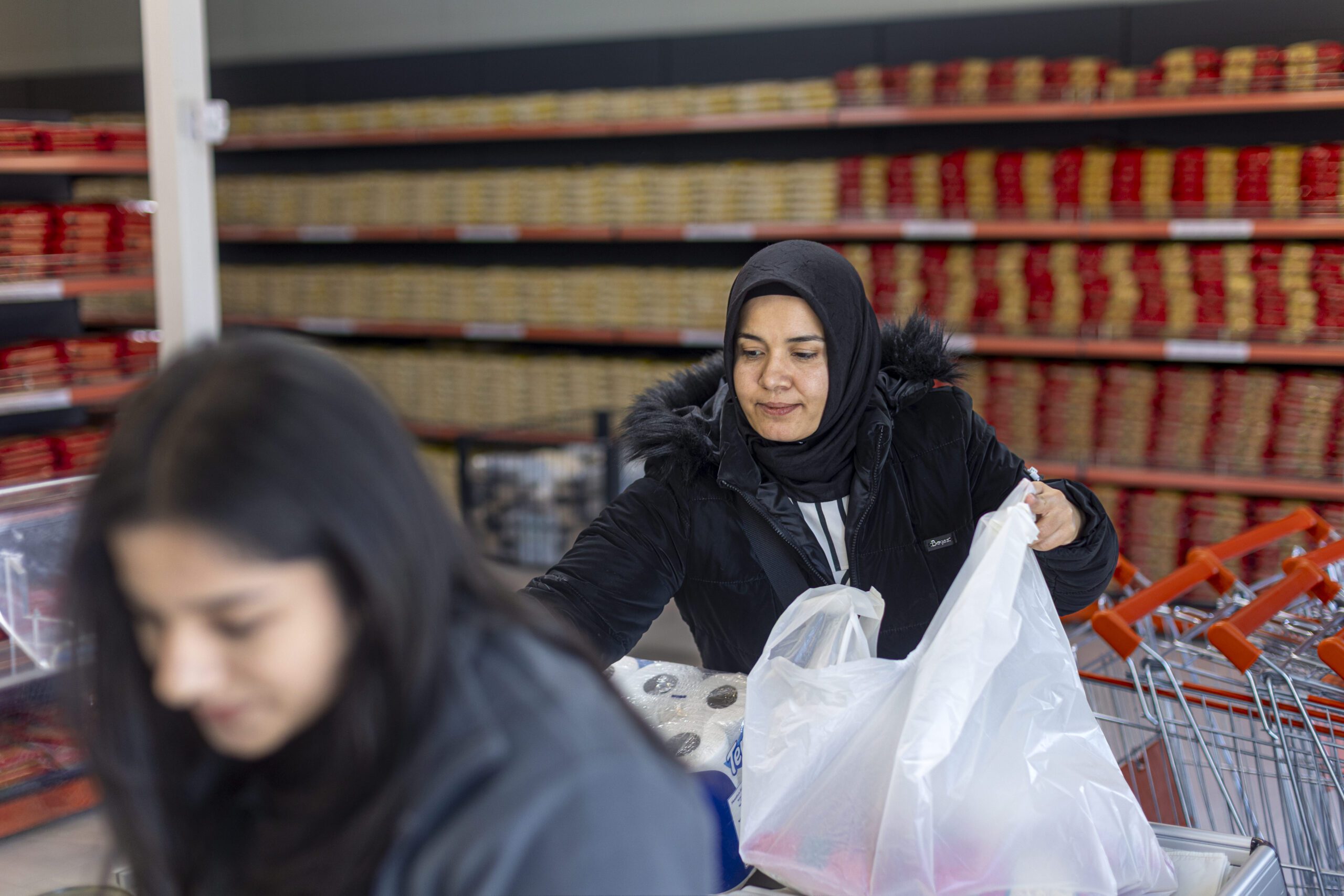
The earthquake that hit southeastern Türkiye on February 6, 2023, lasted little more than a minute but caused more than 50,000 deaths. In Adıyaman, 40% of buildings collapsed, and today, about 120,000 of the 267,000 people who live there are in container cities. Like many people in the region, Elanur and Pinar both lost extended family members as well as their housing and jobs.
When the earthquake started, Elanur and her family were in their ninth-floor apartment. They crawled through a window to their balcony, where they waited for the shaking to stop. For 10 days after, they lived in her grandmother’s yard, in a makeshift tent made out of plastic used for gardening.
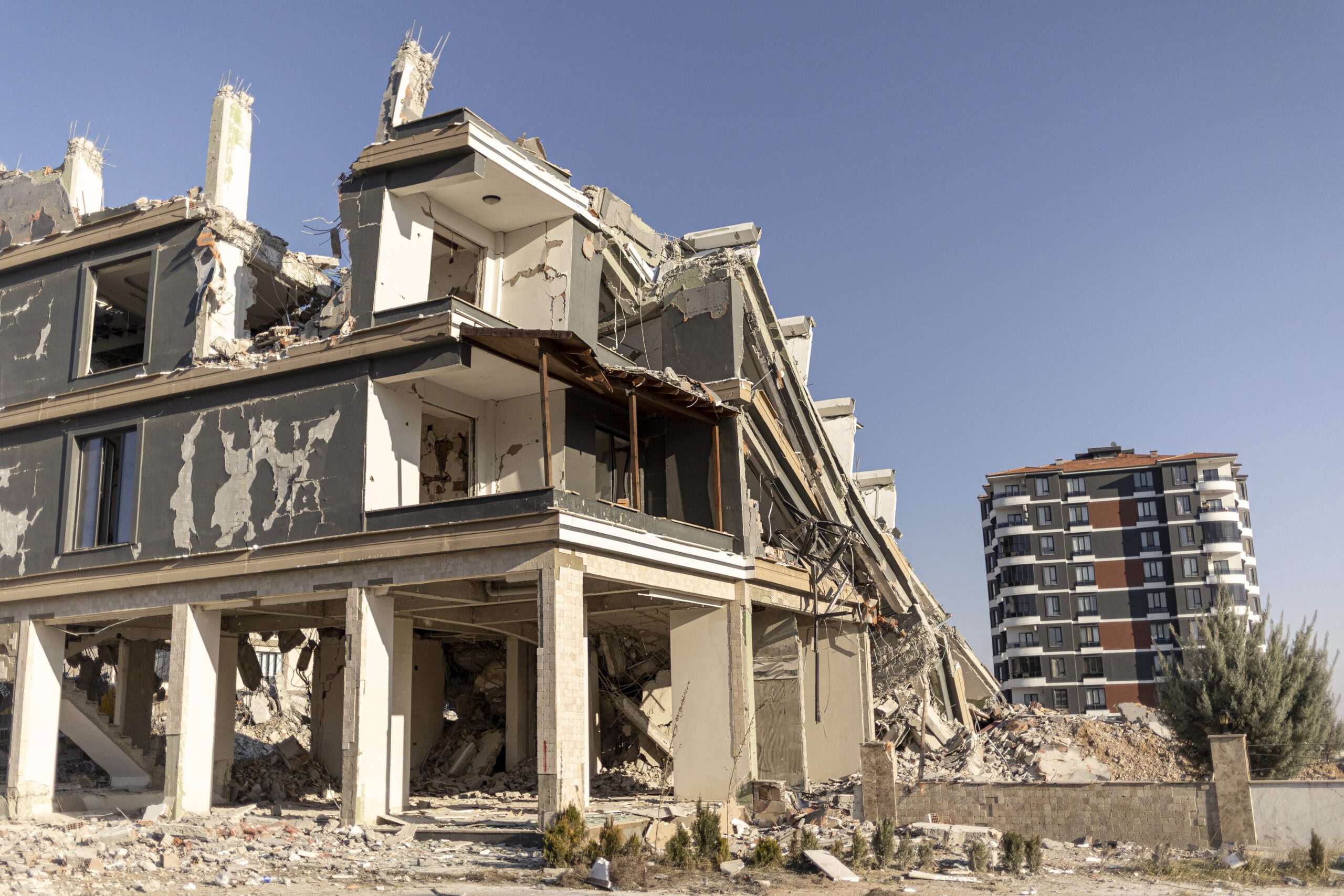
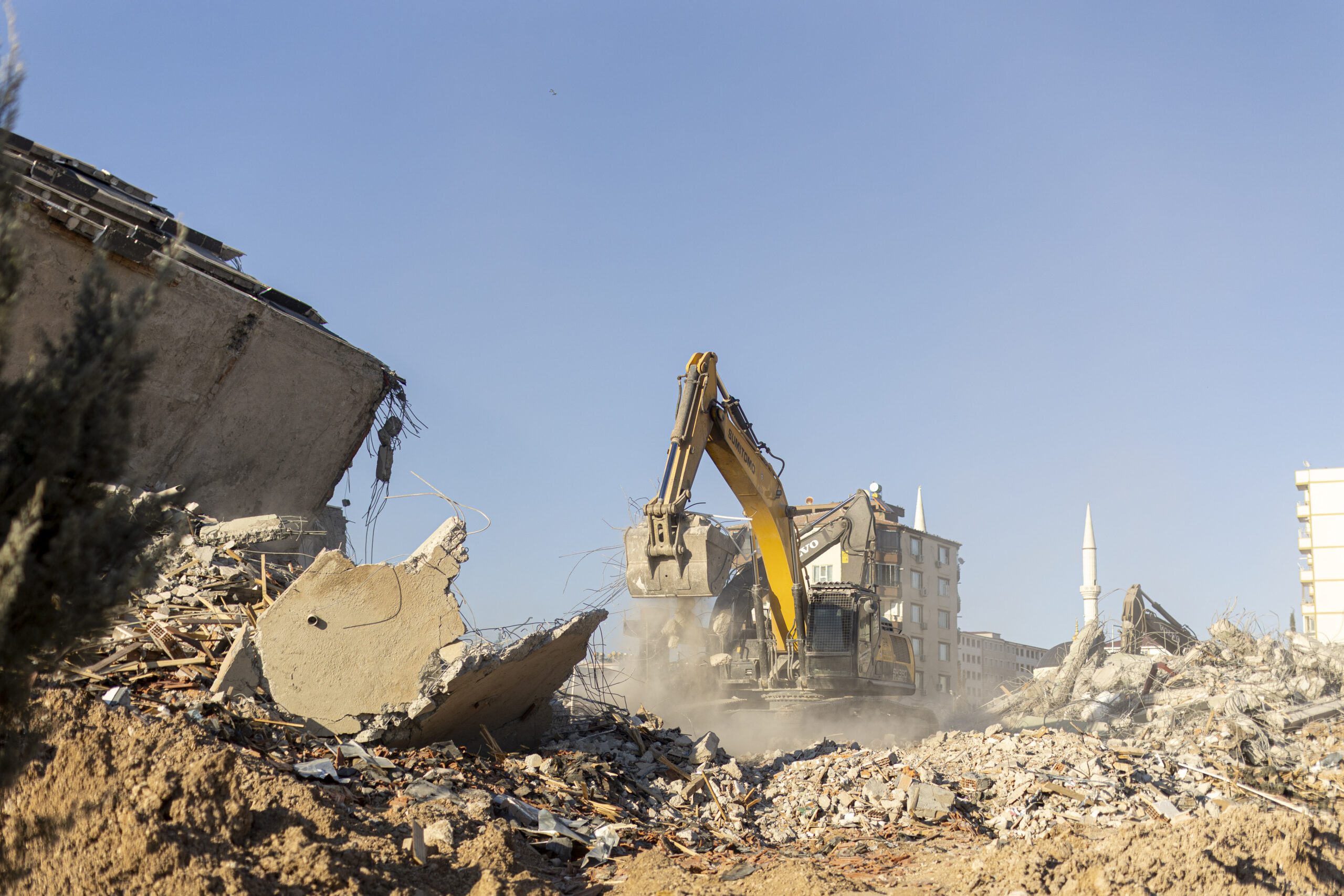
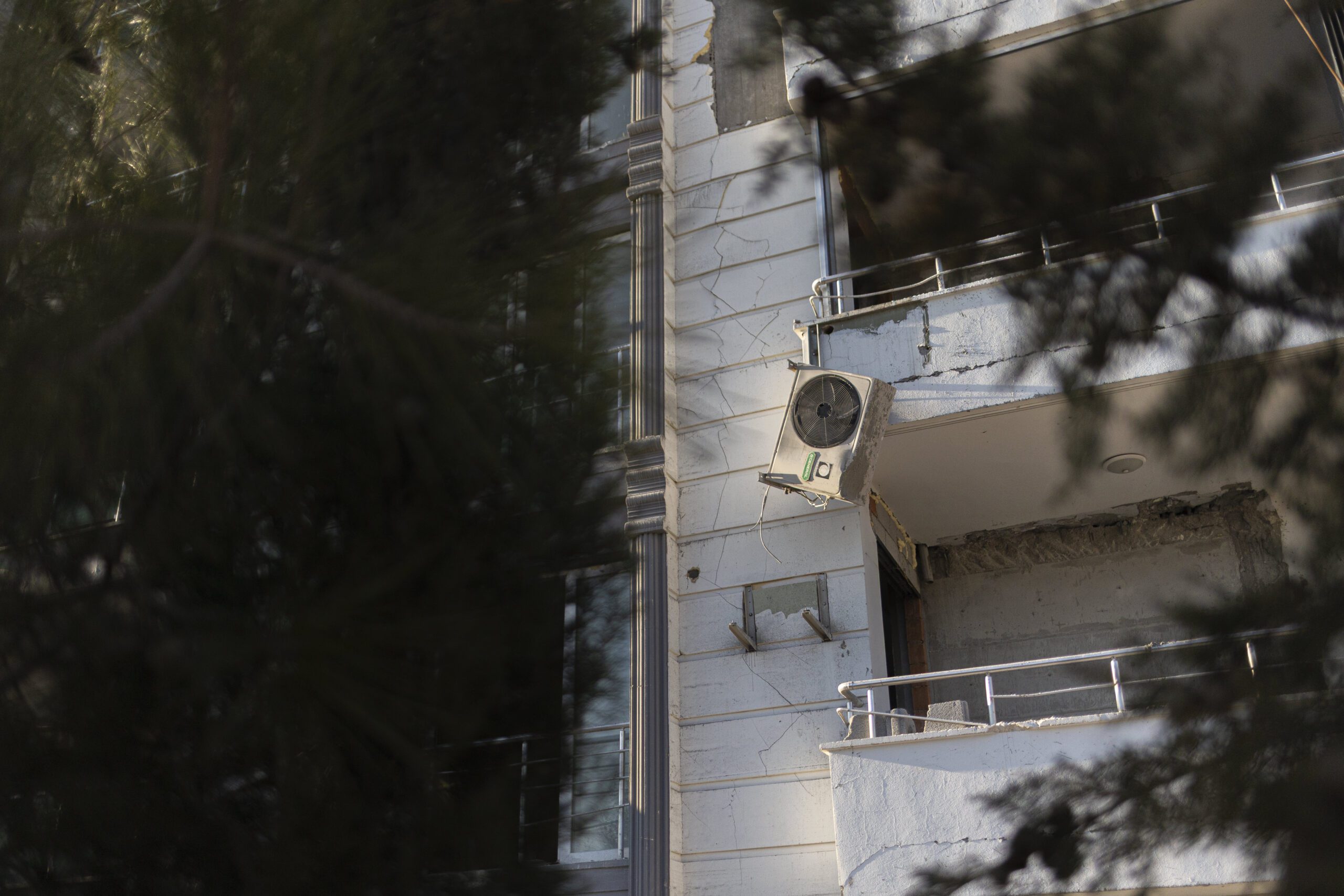
Similarly, Pinar and her daughters lived outside for four days, then moved into a tent for another two weeks, which provided basic shelter from the constant rain. She says that, though heavily impacted by the earthquake, Adıyaman wasn’t receiving as much attention as other cities. TIDER staff noticed the same thing.
“We saw that Adıyaman was kind of lost,” said Nil Tibukoğlu, TIDER’s general manager. “Nobody was talking about the measure of destruction there.”
After the earthquake, TIDER initially responded as a key member of the Afet Disaster Platform, providing rescue teams in the region with food and tools for reliable communication. The Disaster Platform is a coalition of 68 nonprofit organizations committed to providing holistic crisis support, everything from food and housing to psychological services and even pet rescue. Five associations — TIDER among them — created the Disaster Platform after the 2020 earthquake in Elâzığ.
In the first week, TIDER led Disaster Platform efforts to establish temporary regional warehouses based in Gaziantep and Hatay. From there, teams distributed food, blankets, tents and anything else that those affected and volunteer workers needed in different cities.
TIDER received financial and technical support from The Global FoodBanking Network that helped expand their ability to respond to the disaster appropriately and help people like Elanur and Pinar. “They raised $600,000 for us that year,” Nil said, “and that was much more than our budget.” With all of TIDER’s resources focused on earthquake response, GFN helped the organization cover its most essential operating costs, as well as a school feeding program that provided lunch to more than 250 children every day for four months.
“Without GFN’s support, it would have been difficult to pay salaries, the rent of the warehouse, logistics, travel expenses, any of that,” Nil said. “It kept us alive. When you know a community [like GFN] will help you, for us, it was a chance to be brave.”
At the same time they were providing disaster assistance with GFN support, TIDER assessed the needs of the region and planned for sustainable medium- and long-term aid to earthquake-affected communities. And, as resident Pinar noted, overall support in Adıyaman felt inadequate compared to the need, so Nil and her staff made bold plans.
First, TIDER established and operated a temporary warehouse to distribute food and other products. And by April 2023, TIDER had worked with local government to secure a safe, central location to build the Adıyaman Support Market. It had to be a new build, as there weren’t any suitable buildings left standing. The process took about five months, with food company Cargill providing funding for the construction and two years of operation.
The Adıyaman Support Market opened on October 31, 2023, right next to a bus stop to provide easy access. Today it serves about 2,000 people a month. The market is designed so its shoppers have many products to choose from — about 43 currently, from pasta, milk and baking supplies to baby necessities and clothing. Staff members regularly check in with their customers to see if anything should be added to the market’s inventory.
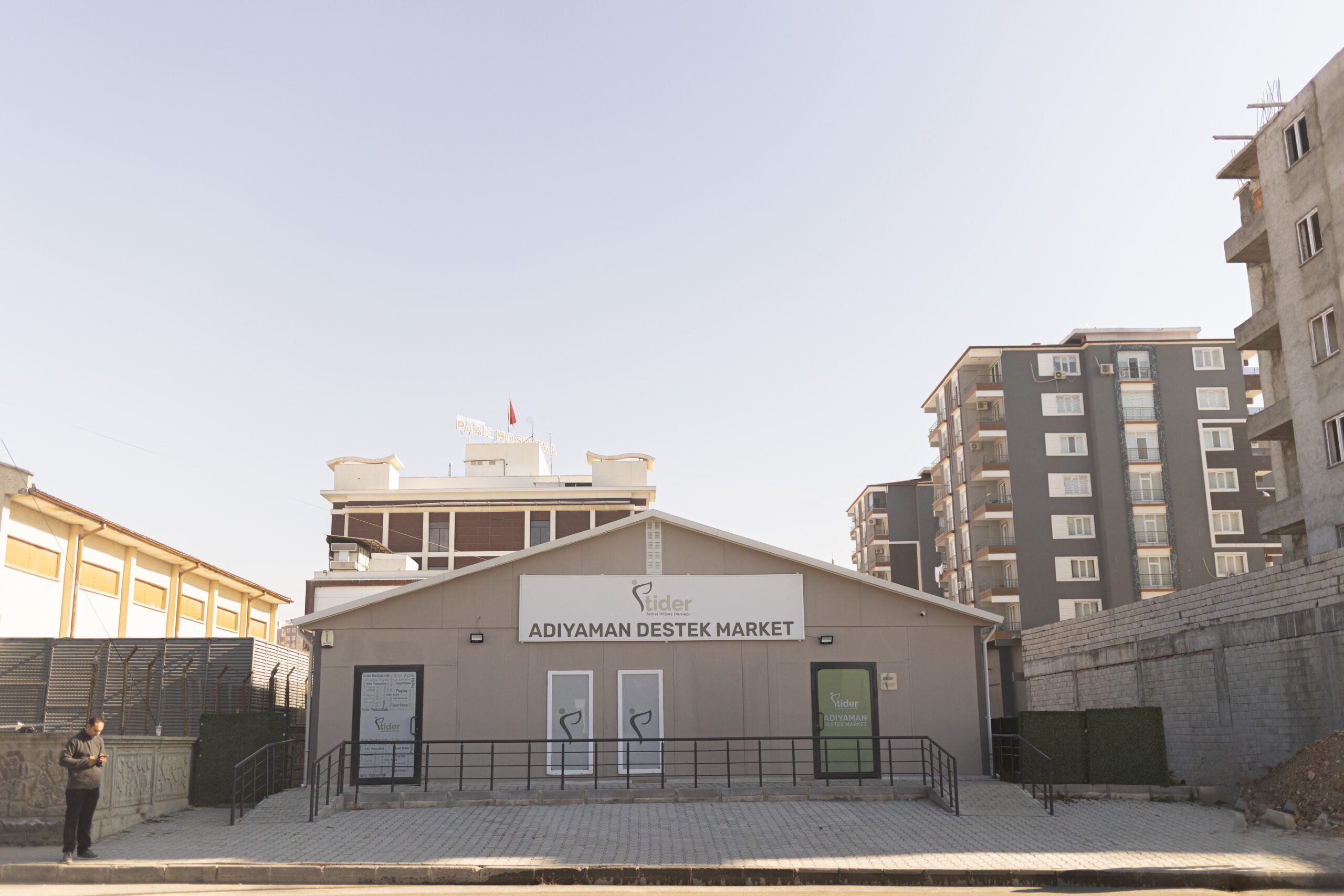
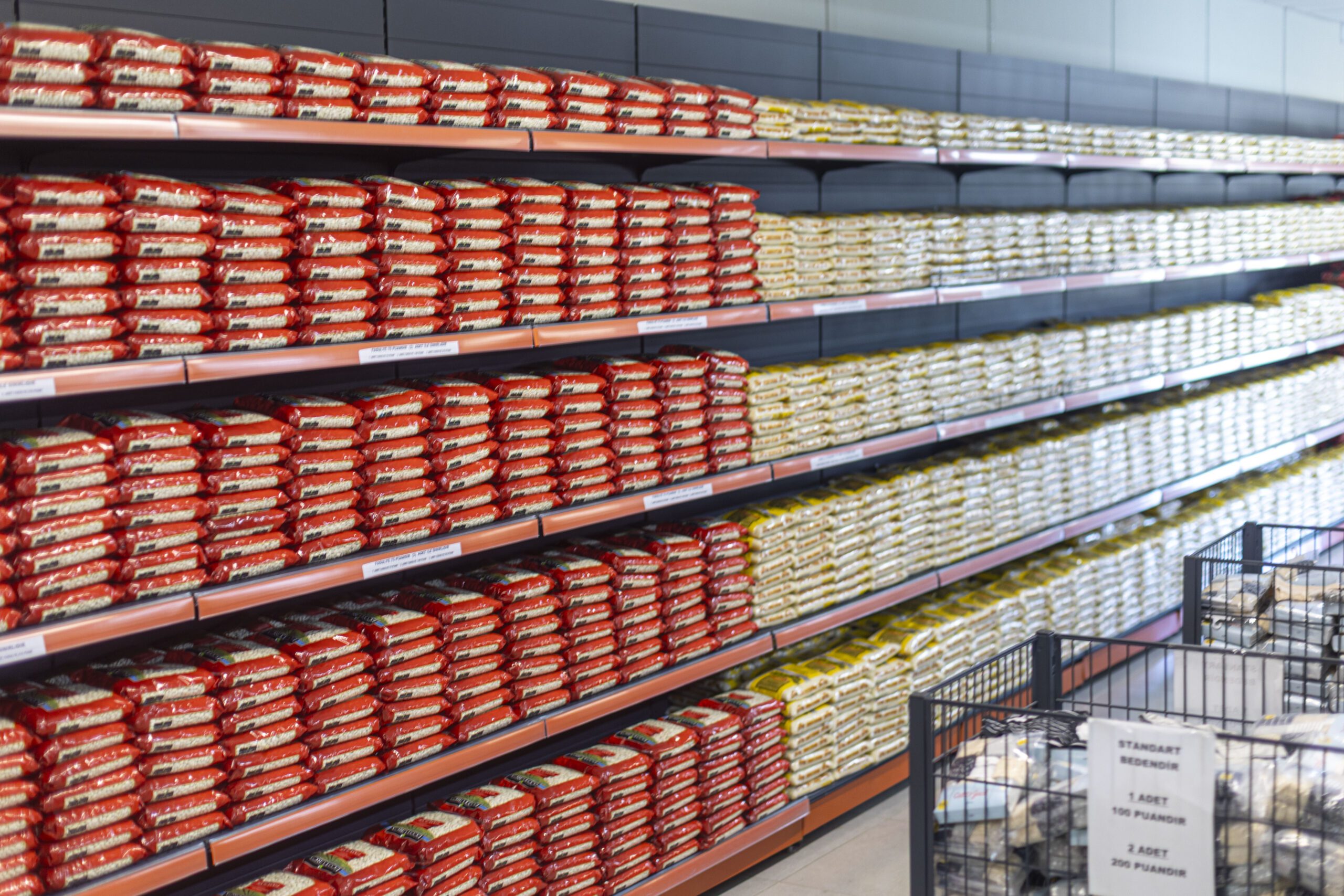
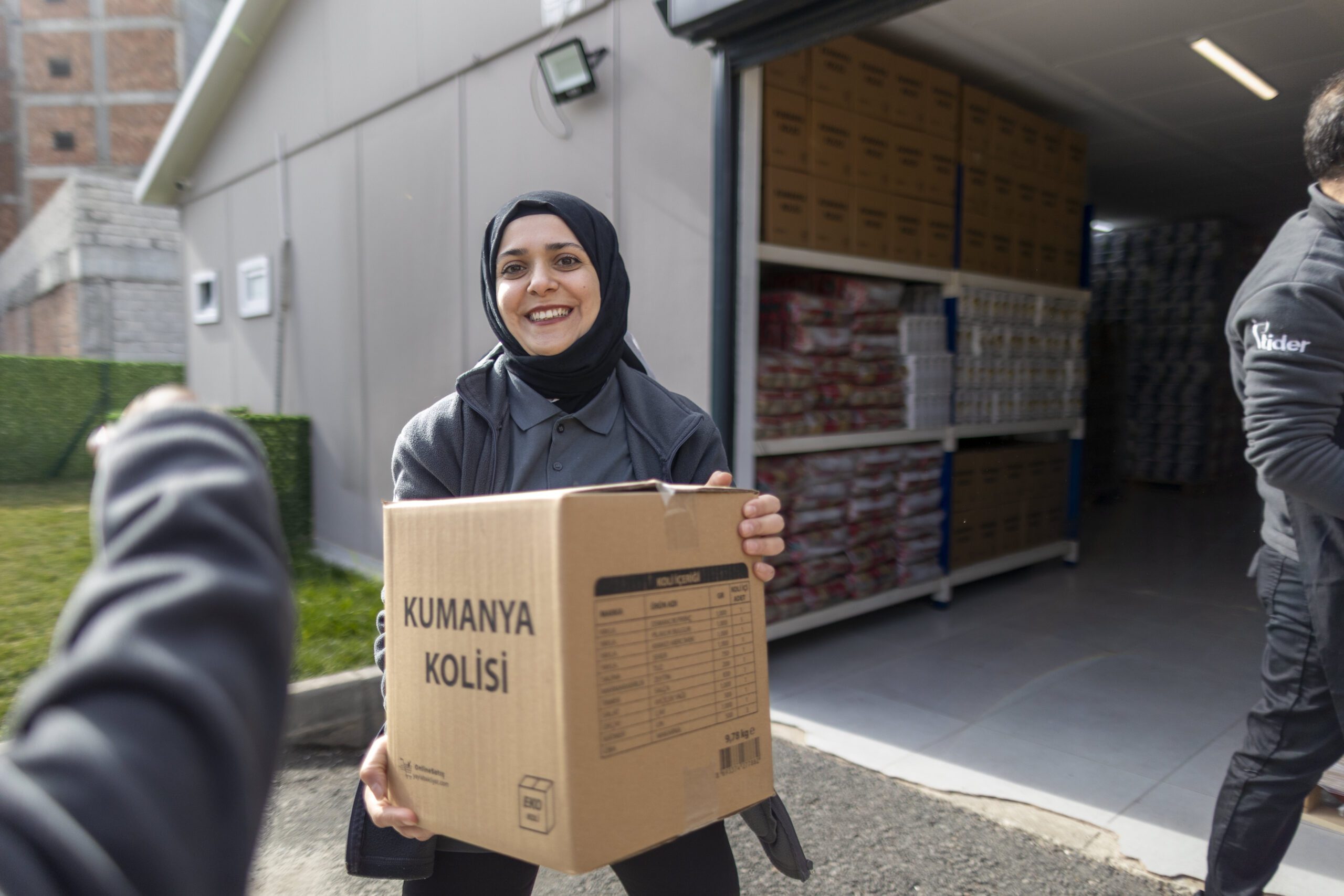
“We believe that the people we serve in Türkiye are not always choosing their lives for themselves,” said Nil. “They’re not choosing anything in life, where they live, what they eat. This is the best way to provide food for them because they can choose for themselves. It’s not our job to choose what they need.”
Pinar said that the Support Market cuts her household’s monthly shopping expenses in half, allowing her to buy books and other educational supplies for her two daughters, ages 12 and 10.
“My kids love pasta, so I get some each time I come here,” she says. “I also get some personal hygiene supplies. It’s a great central location for finding food and other products, and I love what they have here. They have all the products we really need, and it’s been a great support to us.”
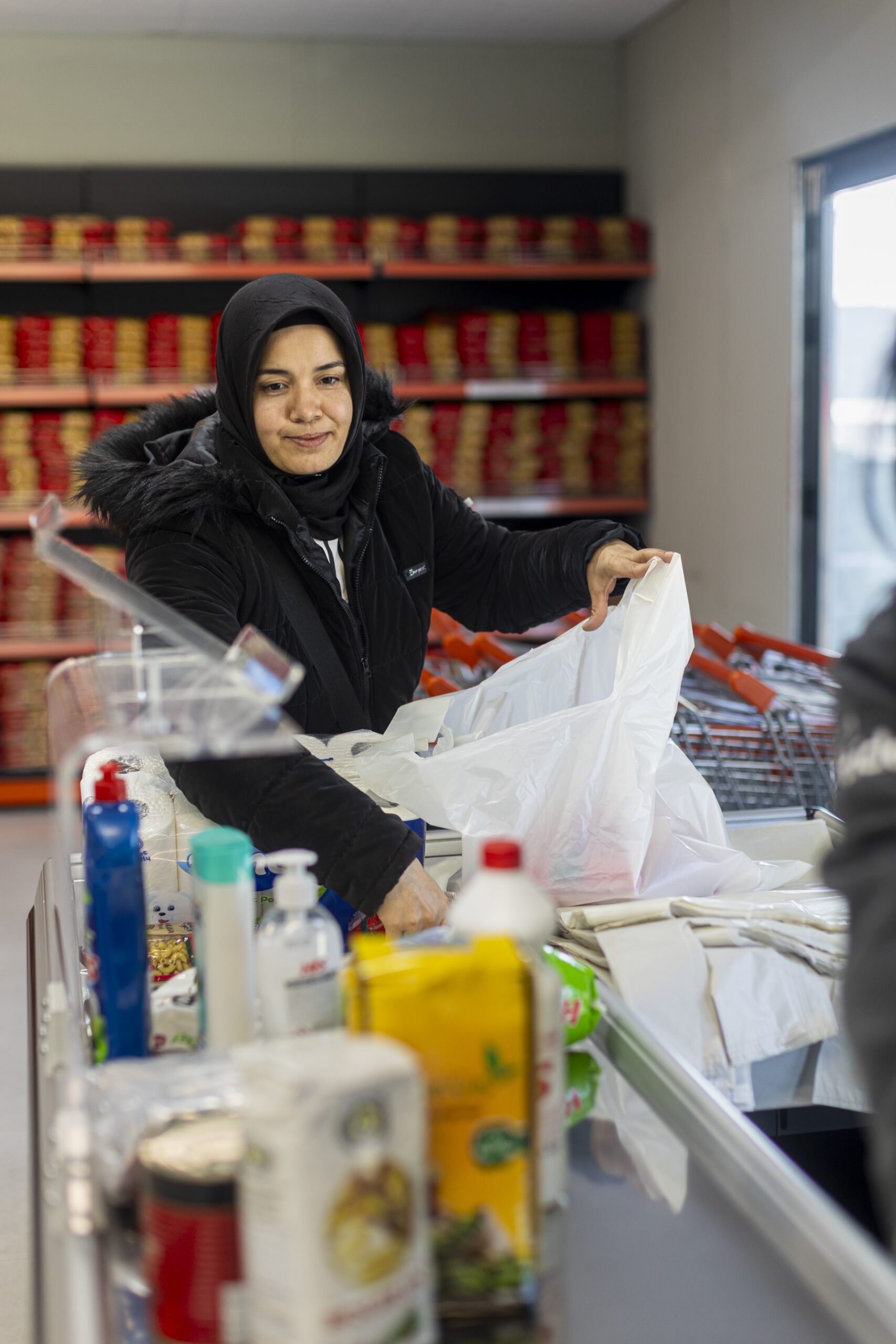
For residents of Adıyaman, the Support Market has also become a trusted hub where they can rely on staff members to connect them to services from other organizations.
“We always say that, if the community accepts a food bank, it will become a community center. They come to our food bank now for their other needs, if someone needs a wheelchair, someone needs education, someone needs a different kind of product,” Nil said.
Over the course of the last two years, TIDER and Adıyaman Support Market staff members have heard from the community about one specific need repeatedly.
“Adıyaman wasn’t only impacted physically from the earthquake,” said Melike Çorlak, TIDER project manager. “In addition to losing their homes, people lost their jobs and any job prospects. Many workplaces suffered extensive damage, so people needed basic supplies, but they also needed the support to find jobs.”
Even before the earthquake in 2023, Elanur shouldered a heavy burden, especially for someone so young. In 2020, her mother, Hava Çakır, fell from their apartment’s balcony. Since then, she’s been unable to work, and the responsibility for earning money for the family’s needs has fallen to Elanur. She was only 15 years old when her mother’s accident happened.
Now 20, she continues to take care of her mother and her three siblings, ages 15, 9 and 2 — and that care includes ongoing expenses for her youngest two siblings. “I’m not just working for myself,” she said. “All of this responsibility is mine.”
In 2023, Elanur worked for a hair salon, but that steady employment was erased by the earthquake. For a little more than a year, the family lived in another city, where Elanur found another salon job, but it didn’t pay much or provide health insurance. Her mother wanted to be close to family, so they moved back to Adıyaman, into the government-issued container house in Hope City, in mid-2024. The family of five now makes do with the limited space, sharing one room with a couch, two bunk beds and a kitchenette, as well as a small bathroom.
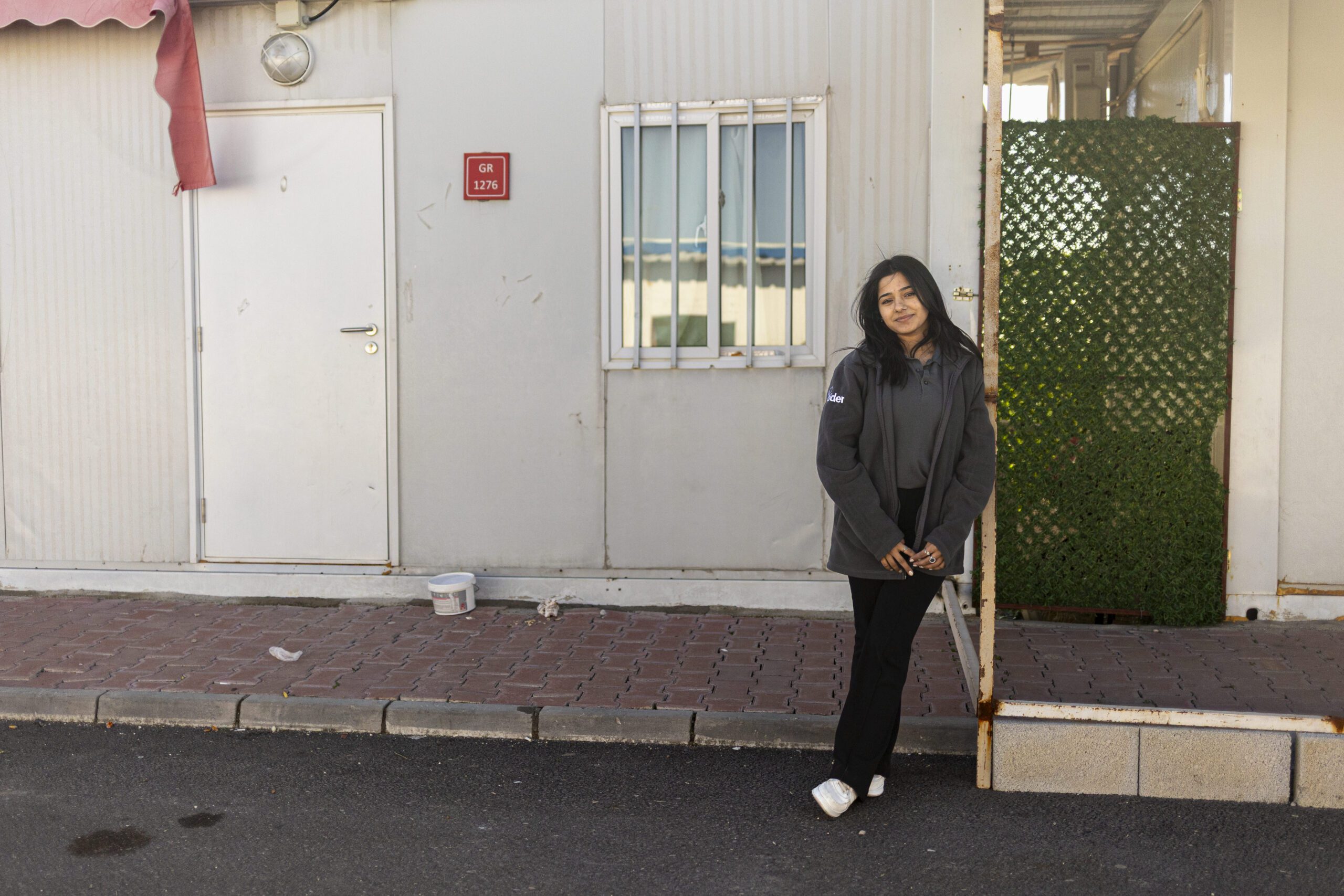
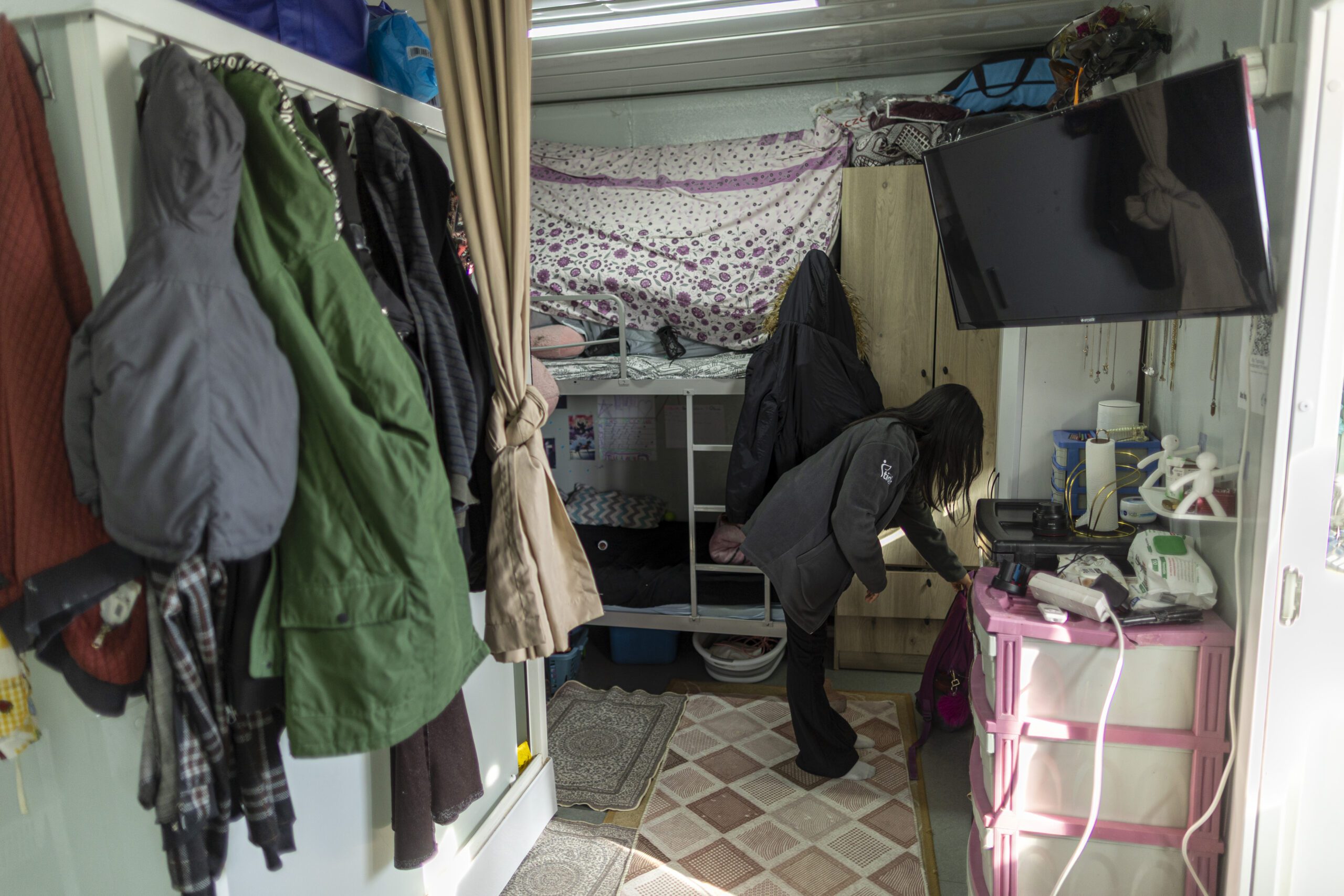
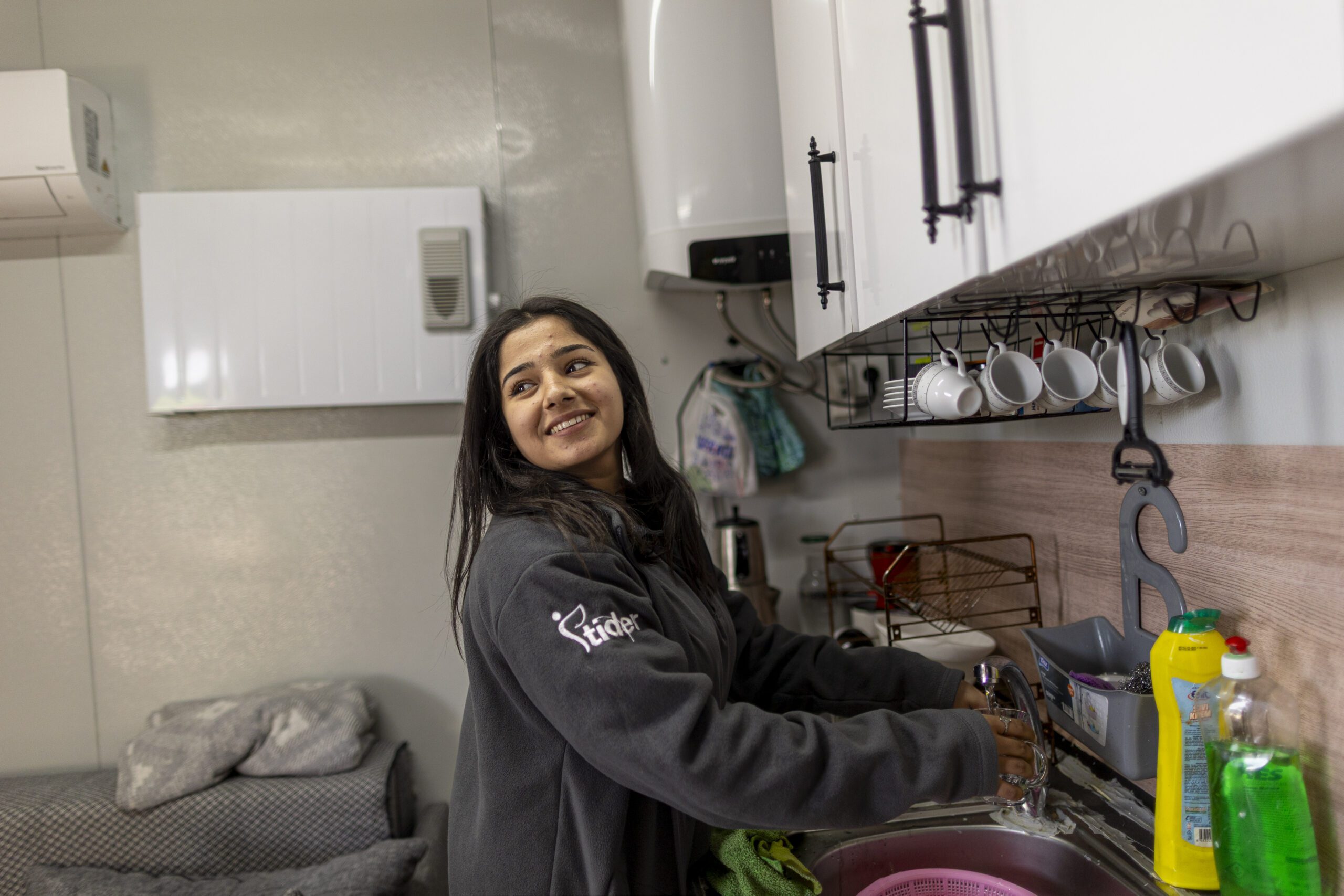
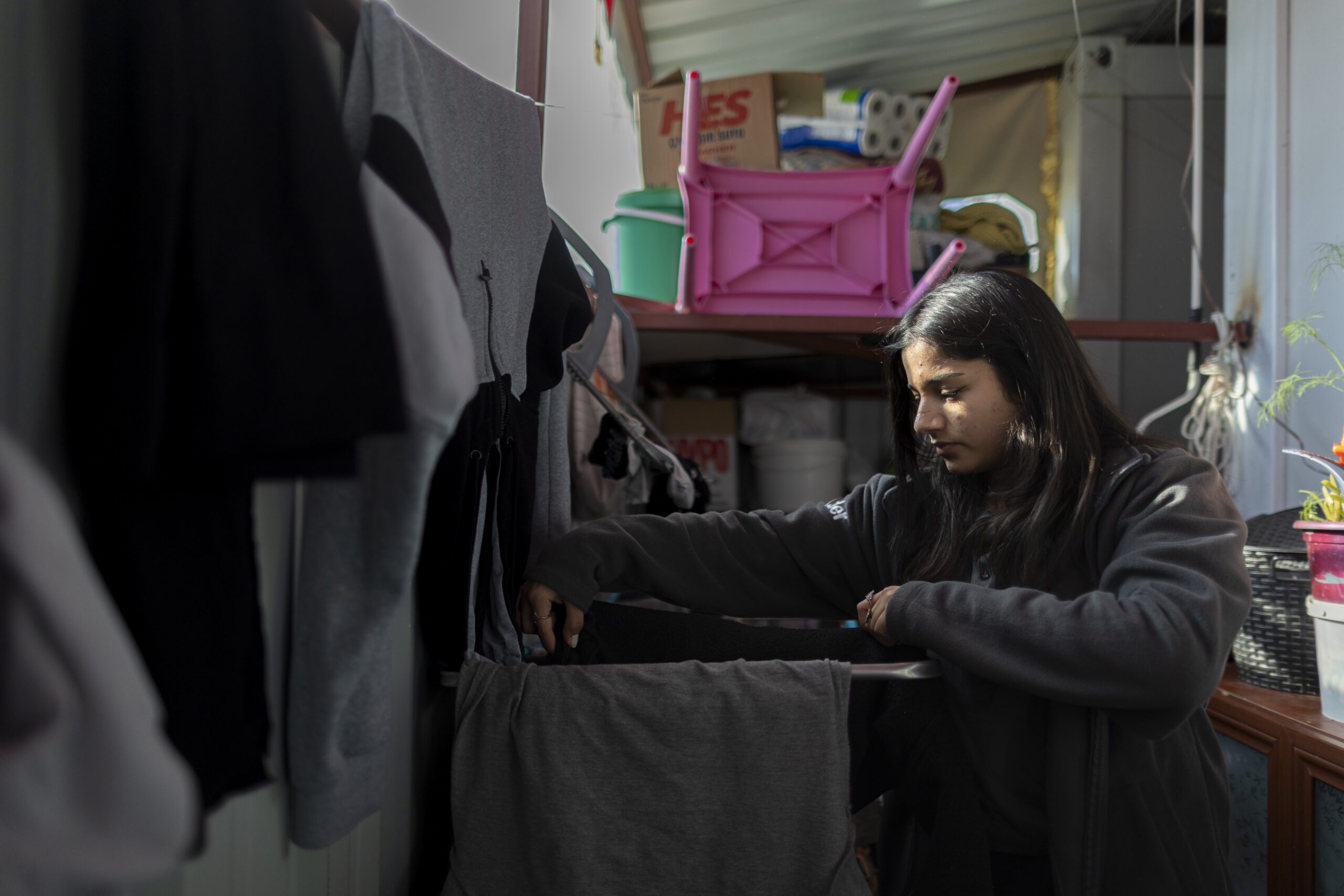
It’s at that house where Elanur first met Adıyaman Support Market staff, who explained the food bank’s services to the family. After learning more about their situation, the staff members thought Elanur would be a good fit for a TIDER initiative new to Adıyaman.
“Our HR Support program is a digital platform developed to make sure the beneficiaries of food banks can find jobs,” Nil said, who oversees the program. Both job seekers and potential employers can register on the HR Support website. TIDER uses those databases to match the two. As a part of the program, TIDER helps those looking for jobs with resumes and interview preparation. The HR Support program started in 2015 and won GFN’s first-ever Innovation Award in 2017, and in late 2024 its services were expanded to Adıyaman.
“As soon as we opened the food bank, we planned on beginning the HR Support program in Adıyaman, but we didn’t [yet] have enough connections with companies,” Nil said. Now, the Adıyaman Chamber of Commerce, comprised of 47 local businesses, is an official partner of HR Support. TIDER is making sure there are many more partners to come.
And Elanur is the first local HR Support participant — matched to a staff position with TIDER’s own Adıyaman Support Market, which provides not just a steady salary and health insurance but other, intangible benefits: both she and her mother note a remarkable improvement in their mental health thanks to the stability and peace of mind this job brings to their family.
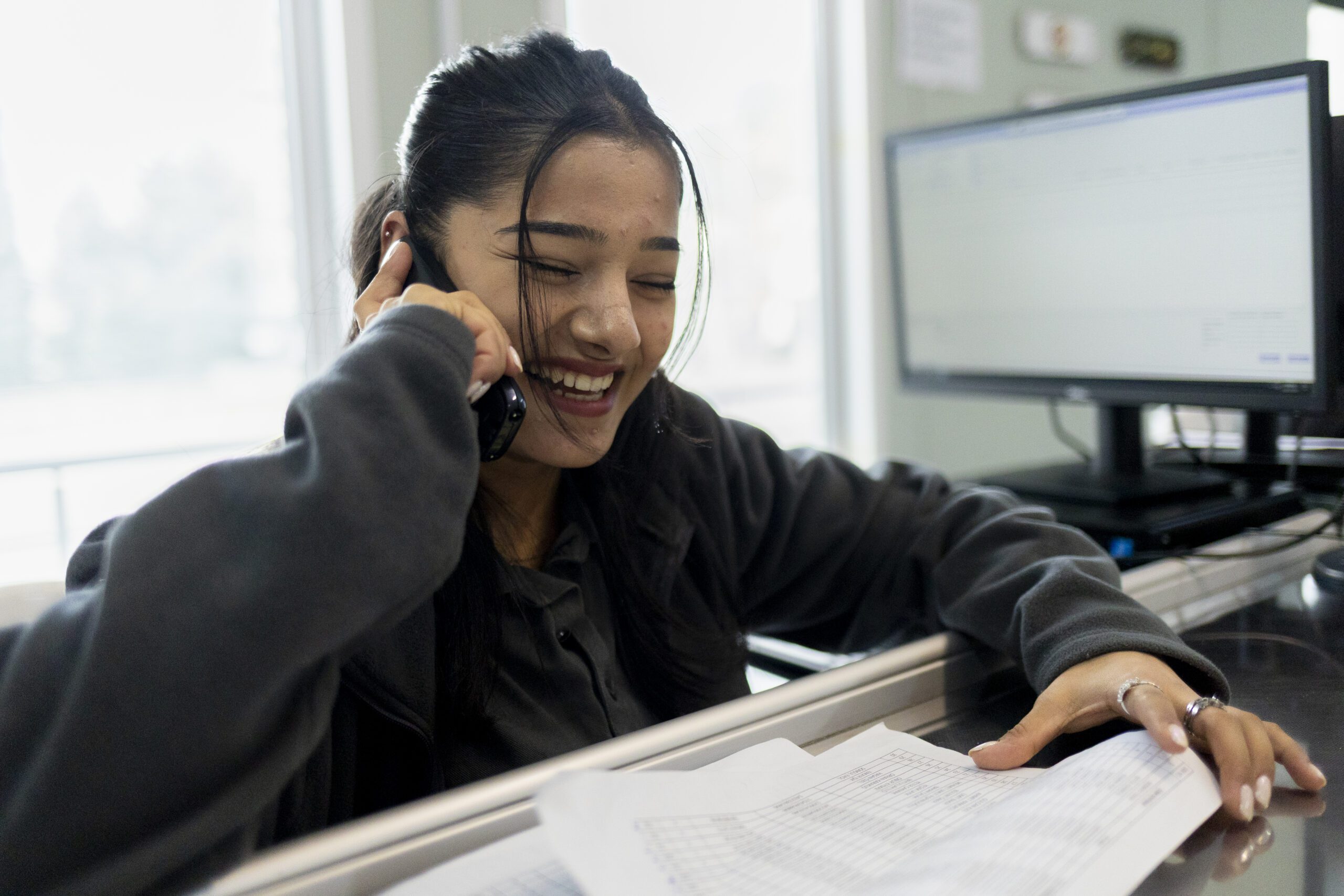
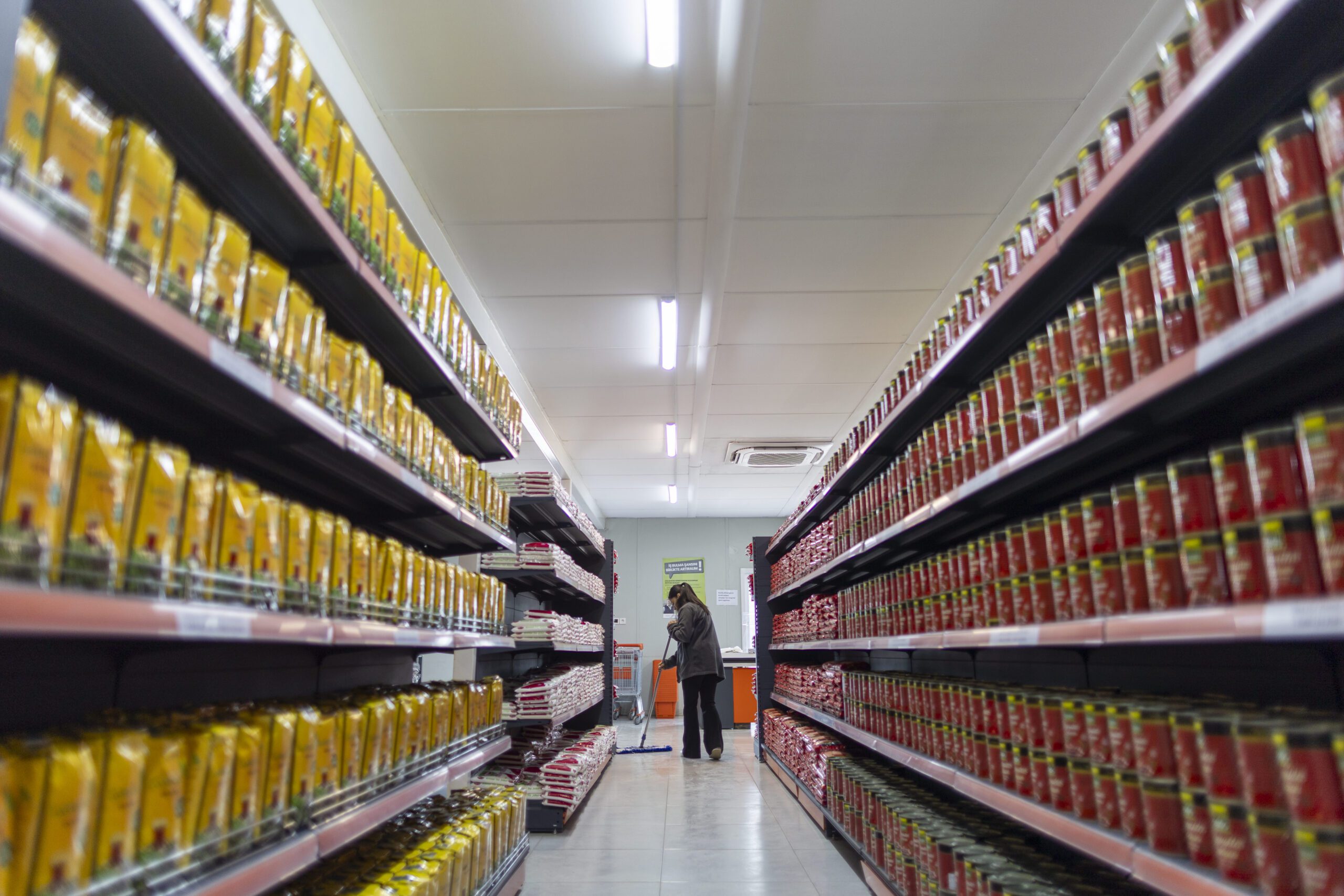
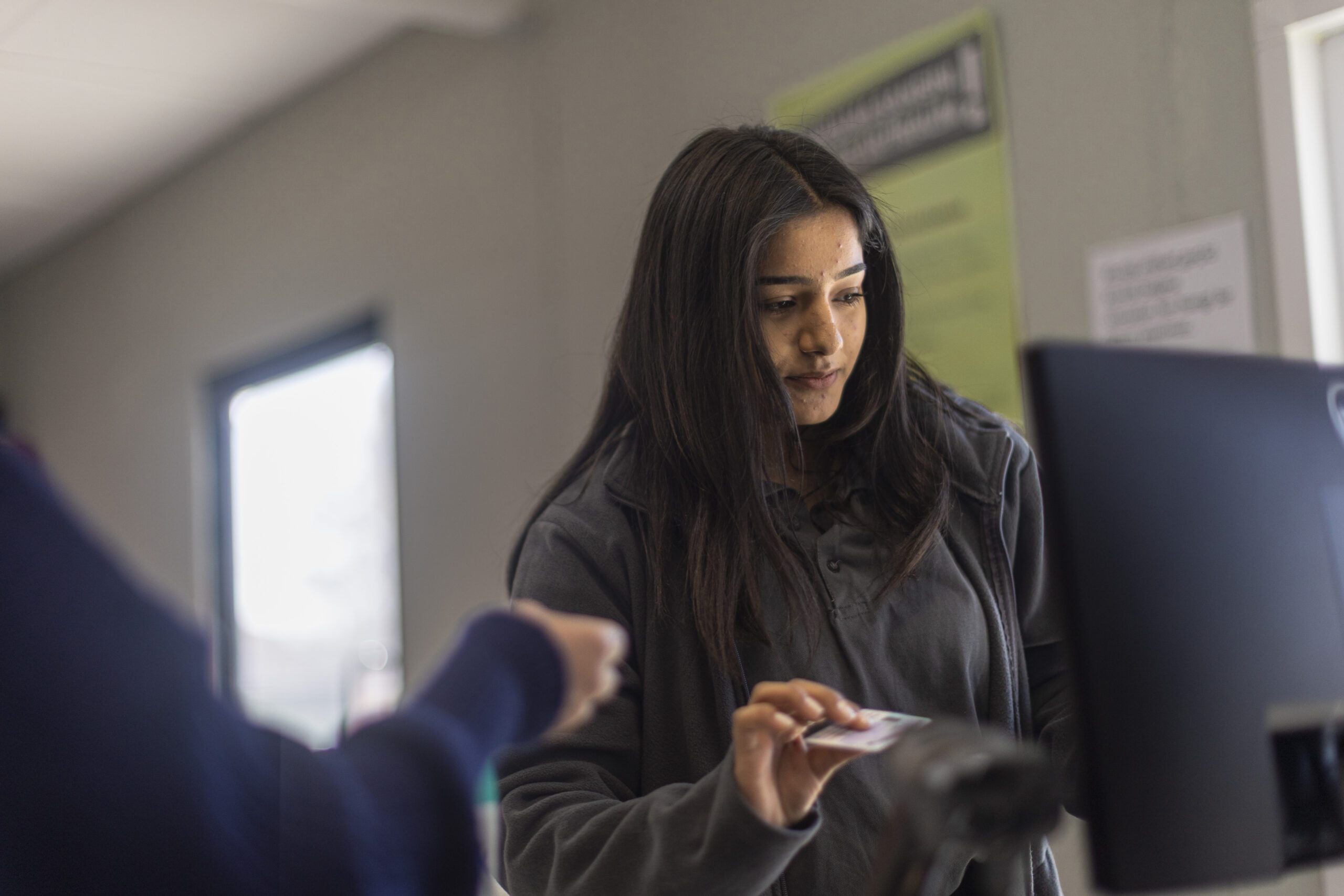
“[Working here] actually changed so many things in my life,” Elanur said. “Here, I’ve learn to have self-confidence and feel strong.” Through her job, Elanur receives career development and other education opportunities. Eventually, she would like to attend university and continue to pursue a nonprofit career.
“Before TIDER, I thought some things weren’t possible. That I couldn’t do this. But right now, I don’t think anything’s impossible for me.”
These days, when Adıyaman Support Market shoppers walk in the door, Elanur still greets shoppers with a smile from the register. After that, she might jump into fine-tuning their resumes.
“Elanur is not only an employee of the market, she’s a supporter of the HR Support program,” Melike said. “She talks to the 1,500 families who [are a part of] this project.” TIDER staff are working to rapidly expand the program and match people who haven’t been able to find work with partner employers, including like Elanur’s neighbor Pinar.
“Once people join the HR Support program, they no longer need the Support Market,” Melike said. “Our goal is to create a system where nobody needs these markets.”
